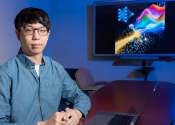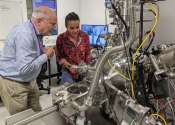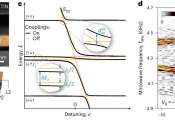Physicist achieve milestone in quantum simulation with circular Rydberg qubits
A team of researchers from the 5th Institute of Physics at the University of Stuttgart is making important progress in the field of quantum simulation and quantum computing based on Rydberg atoms by overcoming a fundamental ...









